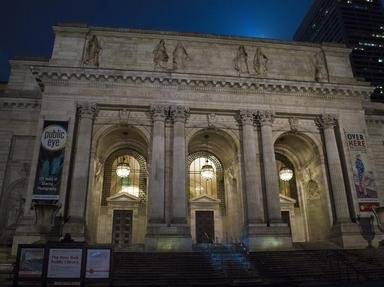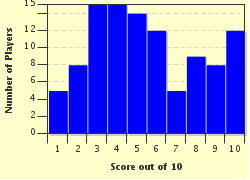Quiz Answer Key and Fun Facts
1. This individual, born the tenth of fifteen children, became a respected scientist and diplomat. However, he is also celebrated for his witty prose and his understanding of human nature. One of his most notable literary achievements is called simply "The Autobiography", which essentially is a recipe for "how to succeed". At one point, he suggests the "rags to riches" story as he presents himself as a bum walking through the streets of Philadelphia while dressed in dirty clothes and eating large rolls, two of which he is carrying under his arms. Who is this man?
2. One of the leaders of the Great Awakening, this individual wrote influential theological works, such as "A Divine and Supernatural Light"; however, others may recognize him for his sermons, such as "Sinners in the Hands of an Angry God" in which he portrays God dangling people over the fires of hell as one would a spider on a fragile, thin web. Who is this individual who served as President of Princeton for three months before dying from a smallpox vaccine?
3. This writer answered "What then is the American, this new man?" and contributed to the "melting pot" metaphor for the United States with these words: "Here individuals of all nations are melted into a new race of men, whose labors and posterity will one day cause great changes in the world". Who is this 18th-century author of "Letters from an American Farmer" who was arrested as a colonial spy just prior to the American Revolution despite his Tory sympathies?
4. In 1794, this man published "The Age of Reason" and boldly stated, "My own mind is my own church". Moreover, he claimed all organized religions were "human inventions set up to terrify and enslave mankind" and the "Word of God" was "hearsay", which no one was "obliged to believe". Denied burial in a church cemetery, who was this man who earlier was celebrated as one of the primary forces responsible for America's victory in the Revolution?
5. From October 1704 to March 1705, she traveled from Boston, Massachusetts, to New Haven, Connecticut, and then to New York City before returning home to Boston. Her various experiences and observations during this hazardous journey, one unprecedented for a woman traveling alone during her time, are recorded in "The Private Journal of a Journey from Boston to New York". Who is this woman who captured an accurate picture of provincial colonial America?
6. One of this writer's well-known poems, "The Wild Honey Suckle", suggests early Romantic influences as the speaker grieves the eventual death of a flower. Furthermore, he is spurred into reflection as he concludes: "If nothing once, you nothing lose, / For when you die you are the same; / The space between, is but an hour, / The frail duration of a flower". Who is this early American poet who died of hypothermia while lost in a blizzard?
7. This individual authored the poem "On Being Brought from Africa to America", in which she quite radically expresses gratitude to God for bringing her to America, even as a slave, so that she could learn of Him and Christianity, but then criticizes Americans for their racism and reminds them that there will be no segregation in Heaven. Who is this poet who is credited with having launched the African-American literary tradition?
8. In 1798, Charles Brockden Brown published a novel that condemned religious fanaticism through a story of a man who kills his wife and children because he believes he hears a supernatural voice telling him to do so. What is the name of this epistolary fictional work that is generally accepted as the first American Gothic novel, if not the first significant American novel period?
9. Published anonymously in 1797, "The Coquette or, The History of Eliza Wharton" is a fictionalized account of the real-life Elizabeth Whitman, an unmarried woman who died in 1788 at the age of 37 after giving birth to a stillborn child in a roadside tavern. Who was the author of this best-selling epistolary novel?
10. This statesman is also known for his facetious letters, such as "To Madame Helvetius" and "To the Royal Academy of Brussels". However, the one most well known is "To a Young Man on the Choice of a Mistress", in which the writer advises a young philanderer either to get married or to seek an affair with an elderly woman. Who is the author of these letters?
Source: Author
alaspooryoric
This quiz was reviewed by FunTrivia editor
looney_tunes before going online.
Any errors found in FunTrivia content are routinely corrected through our feedback system.

